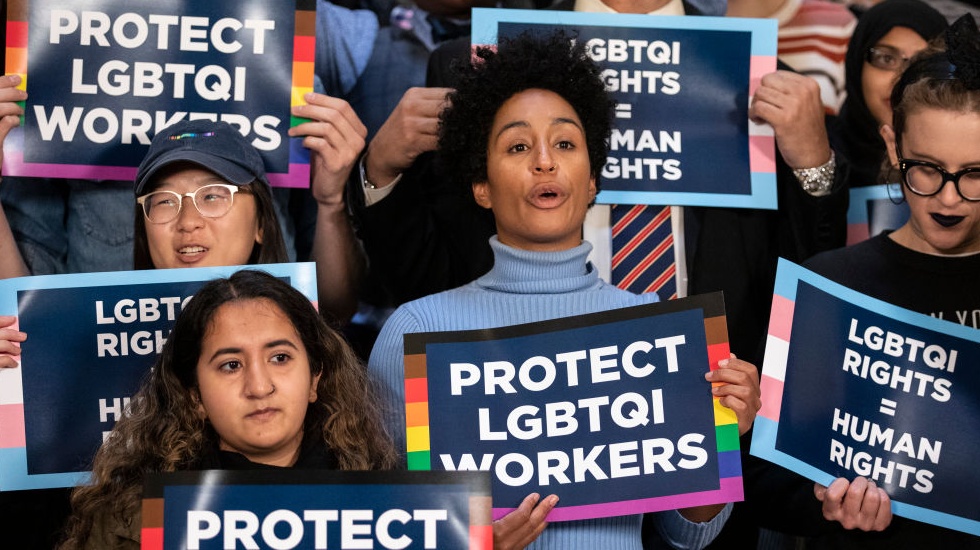The Supreme Court will hear a set of monumental cases surrounding the future of LGBT worker’s rights on Tuesday. These cases are aimed to ensure LGBTQ+ people maintain employment whilst being their authentic selves publicly.
Two of the three cases — Altitude Express Inc. v Zarda and Bostock v. Clayton County, Georgia — center on men who say they were fired from their jobs for being gay and the third case — R.G. & G.R. Harris Funeral Homes v. EEOC & Aimee Stephens — focus on a transgender woman who was fired after informing her boss she was transitioning.
Little Known Black History Fact: Eugene Ballard
Protections from discrimination was granted by the Civil Rights Act of 1964. Title VII, which bans employment discrimination, is under consideration in these cases. The employees centered in these cases argue discrimination based on sexual orientation should be considered sexual orientation and gender discrimination; since who they love is only an issue because of those key factors.
“If a male employee is raising a small child and he can keep his job, but a woman has a small child and she’s not eligible for continued employment that’s obviously sex discrimination,” said Gregory Nevins, director of the Employment Fairness Project at Lambda Legal in a statement reported by Them. “But it should be the case that if a man has a wife, and a woman has a wife, but only one of them gets fired for it, that’s also sex discrimination. It’s both sexual orientation discrimination and sex discrimination.”
Source: Supreme Court Hears Three Monumental LGBTQ Workplace Rights Cases

Recent Comments